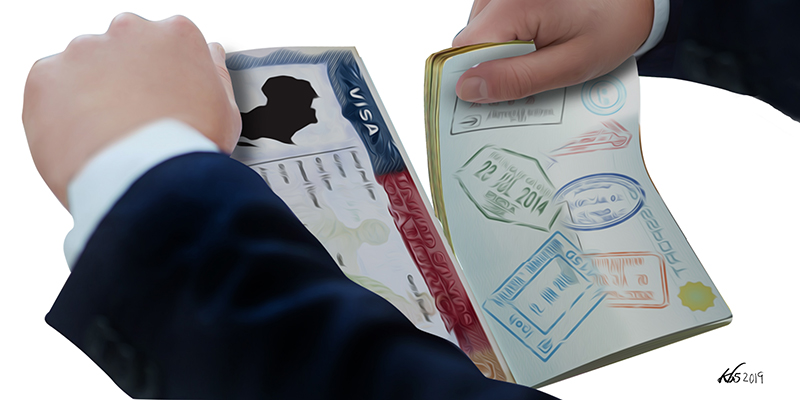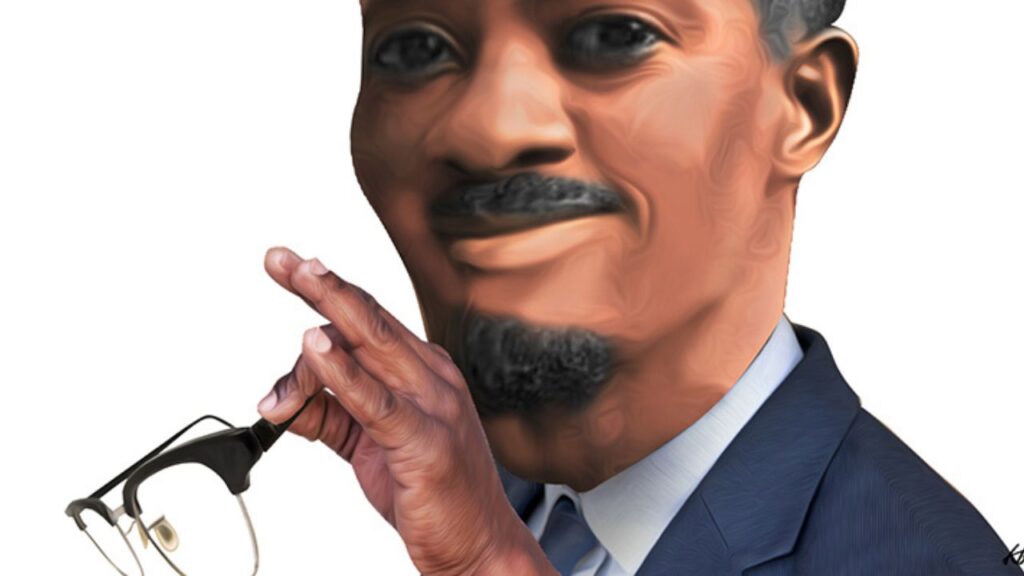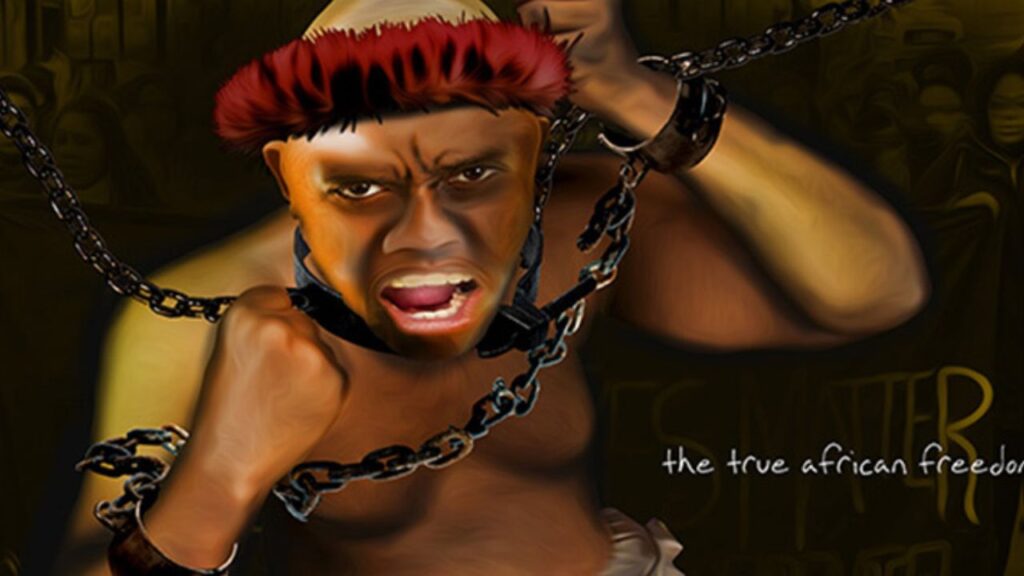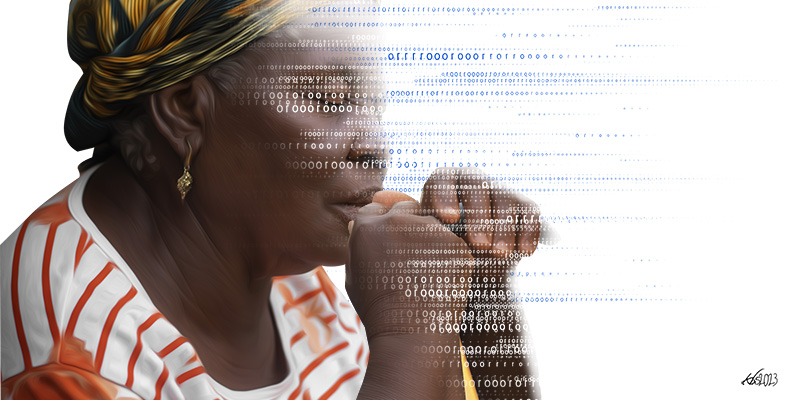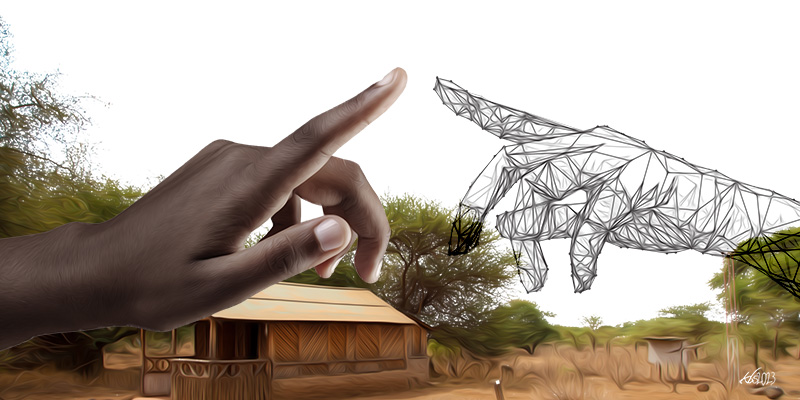The United States of America has excelled in projecting an extraordinary image of itself as a free nation with a thriving democracy, where anyone can come and work their way towards a better life through civic participation. However, what the past few years in particular have peeled away betrays a somewhat different truth: that voting in the United States is hard and getting steadily more so. And there’s one group of people who face a particular set of difficulties when seeking to cast their ballot: African immigrants.
Some historic context is needed regarding voting issues within the US. First and foremost, there is a historic precedent of voter suppression in the US that is unequaled within the modern Western world. Much of the targeting of such efforts has directly affected African Americans and people of colour. After slavery was abolished, states would go to incredible lengths to suppress the black vote, including implementing taxes on voting, forcing black people to produce extraneous forms of personal and family identification and making would-be black voters pass vaguely worded and lengthy “literacy tests” in order to cast their ballot. These systems, a part of the infamous Jim Crow laws, were struck down as illegal in 1965 when the country passed the Voting Rights Act.
In the years that followed, those who sought to seek the vote sought out ways to circumvent the law and keep the voter turnout low. Since the latter half of the 20th century, high voter turnout translated to a more liberal result. Take, for example, that a Republican presidential candidate has won the popular vote once since 1988 (George W. Bush in 2004). In the cases of the victories of Donald J. Trump in 2016 and George W. Bush, they skated to victory through the electoral college; a system that traces its roots to suppress the popular vote.
When looking at US politics, it isn’t as much a matter of high voter turnout as it is who comprise the voters that are showing up to vote. The most telling demographic, the group with the highest disparity of aligning with Democrats over Republicans, is African Americans. Hillary Clinton carried the black vote by an 80 point margin – 88 per cent to 8 per cent over Trump in the 2016 election. This margin, coupled with the United States becoming more, not less, diverse has left those seeking to suppress the vote scrambling for answers.
In 2013, efforts to suppress voters gained a major boost when the US Supreme Court overturned section 4(b) of the Voting Rights Act, which outlined that states and districts that had previously been involved in voting discrimination needed pre-clearance of the validity of their electoral processes. The conservative judges ruled this as unconstitutional, that the section “punished” states for past mistakes, not for possible future successes. Justice Ruth Bader Ginsberg dissented strongly, stating that “throwing out preclearance when it has worked and is continuing to work to stop discriminatory changes is like throwing away your umbrella in a rainstorm because you are not getting wet.”
The Voting Rights Act had been brought before court in the wake of a series of issues across the US, primarily having to do with controversial voting ID laws, reports of voter suppression and other forms of disenfranchisement. In a theme that runs across America’s election process, the black community was disproportionately affected.
This brings the issue to focus on African immigrants in the United States. The issue of immigration in the United States has currently brought the federal government to a shutdown for over a month. There is constant rhetoric from the Trump administration targeting illegal immigrants as a major obstacle to the security and economic future of the United States. The issues of building a border wall with Mexico and continuing to provide guaranteed safeties (such as the Deferred Action for Childhood Arrivals programme, which offers protections to the children of illegal immigrants into the US) are being used as bargaining chips at the government level.
A difficult time
It is a difficult time to be an immigrant in the US. For those of African descent, theirs is a rare combination of challenges, not only in becoming part of a new nation, but also in carrying the baggage that comes with being black in America.
African immigrants in the US are a small but rapidly rising group. The increase has been marked since 1970, especially amongst sub-Saharan Africans. According to the Pew Research Center, the number of African-born individuals heading to the US increased nearly 250 per cent between 2000 and 2015, from 881,000 up to 2,060,000. Africans are also the fastest growing demographic among black immigrants, increasing by 137 per cent between 2000 and 2013.
It is a difficult time to be an immigrant in the US. For those of African descent, theirs is a rare combination of challenges, not only in becoming part of a new nation, but also in carrying the baggage that comes with being black in America.
In the US, a major aspect of any voting rights issue is where in the US you’re living. Different states hold different standards, different regulations and varying requirements. When examining how voting standards impacts African immigrants, there needs to be a brief examination of where African immigrants live.
The five states with the highest African immigrant population are California, New York, Texas, Maryland and Virginia. Cities such as Atlanta, Georgia and Minneapolis also have high numbers of such migrants. This is where context becomes even more important; California and New York are known as more immigrant-friendly destinations, and their major metropolitan areas are regarded as “sanctuary cities” for illegal immigrants. New York and Minnesota don’t require a photo ID whereas California may require one for a first-time voter (newly-naturalised US citizens are always first-time voters). Maryland holds a similar policy.
Texas, Virginia and Georgia, on the other hand, are a different matter entirely. Virginia requires a valid photo ID in order for an individual to vote in person. Texas and Georgia are both mired in controversy over the stringent regulations put in place regarding the standards for voter IDs. The state of Texas is currently mired in litigation over the voter ID laws, with opponents arguing that it disproportionately impacts minorities.
In Georgia, where over 70,000 African immigrants reside in the Atlanta metropolitan area, the man who was presiding as the Secretary of State (the office which controls the conducting of elections, a possible conflict of interest) won narrowly and controversially over Stacey Abrams, who would have been the first black woman elected to be a state governor in the US. Abrams repeatedly made claims that there was voter interference, particularly amongst black precincts, where electronic voting was in disarray and reports of voter suppression were rampant. These claims had much of their basis in and around Atlanta, Georgia.
Why does voter ID matter and how does it affect Africans living in America? For starters, the path to US citizenship (which is needed to vote in America) is extremely arduous, long and difficult. The paperwork hoops to jump through are staggering. On average, it takes an immigrant a minimum of five years of continuous residency to become a naturalised US citizen. In cases that need further legal counsel, it can take even longer as the legal side of American immigration courts have become steadily more choked and congested in the new millennium.
Why does voter ID matter and how does it affect Africans living in America? For starters, the path to US citizenship (which is needed to vote in America) is extremely arduous, long and difficult.
For immigrants, the issues surrounding voter ID can often be much murkier. For instance, immigrants can gain driver’s licenses within the United States, which is one of the key forms of identification needed in states with more stringent regulations. This doesn’t mean that immigrants have the appropriate information explained to them regarding the IDs being obtained. The African Advocacy Network of California notes that although driver’s licenses are applied for successfully by immigrants who aren’t naturalised, the fact that they are still unable to vote due to their status isn’t explained to them. This can lead to immigrants attempting to vote, unknowingly engaging in an illegal act of fraud. The penalties for such fraud in the US are harsh. Both illegal and legal immigrants can face deportation if found to be involved in fraudulent voting. Cases of actual voter fraud involving illegal immigrants are incredibly rare, but that doesn’t stop Trump from repeatedly claiming that Hillary Clinton won the popular vote because of millions of “illegals” somehow managing to cast ballots.
Illegal immigrants in Trump’s America
The Obama administration was noted for its strict approach to illegal immigration, deporting hundreds of thousands between 2009 and 2017. That same administration, however, did focus on expanding a programme called the H1-B visa, which encouraged workers from outside of the United States to enter the country to work. Many prominent corporations, including Amazon, Google and Microsoft, heavily leaned on the programme as it eased the transition for professionals to gain a foothold in the US workforce. In addition, the H1-B programme made the path to a Green Card visa (an initial step towards US citizenship) markedly smoother, encouraging immigrants to engage in the process of becoming a citizen.
The Trump administration, on the other hand, has taken a significantly different approach. The current White House passed an executive order titled “Buy American, Hire American” that directly encourages American companies to hire only the most skilled workers from outside of the United States. This will have a long-term impact on the number of H-1B applicants who can head down the path of gaining citizenship.
The Obama administration had an unfortunate track record of harshness regarding immigration, including reopening and examining case files of naturalised citizens (immigrants who gained their citizenship in the US). The Trump White House has, of course, seized on this idea and expanded it. Under this administration, the U.S. Citizenship and Immigration Service (U.S.C.I.S.) has created a new task force to look into cases and possibly “denaturalise” citizens for often muddied reasons, such as making a clerical mistake on a form. In essence, this leaves millions of naturalised United States citizens’ status at the discretion of officials appointed under the Trump administration, one noted for its blatantly anti-immigrant rhetoric.
A prominent path to Green Card visas for African immigrants is the Diversity Lottery programme, which grants visas to citizens from all over the world. Given the administration’s track record, it comes as little surprise that the White House has looked repeatedly into cutting the programme entirely. As egregious as this is, perhaps the repeated ransom holding of the so-called “dreamers” (children of illegal immigrants born in the United States and granted legal protections) is even more insidious. Trump has made a repeated talking point of ending protections for the dreamers, even going so far as to offer continued protection as a bargaining chip for $5.7 billion of funding for a border wall in January of this year.
The Obama administration had an unfortunate track record of harshness regarding immigration, including reopening and examining case files of naturalised citizens (immigrants who gained their citizenship in the US). The Trump White House has, of course, seized on this idea and expanded it.
So how does this apply to African immigrants, specifically? The numbers indicate that immigrants from sub-Saharan Africa are the fastest growing group, and that the vast majority of this immigration has occurred after 1960. This translates into African immigrants having less of an established civic network than other immigrant groups in the US.
Less civic engagement
Less network means less community engagement and less protection for Africans now calling the US their home. This, in turn, translates into issues surrounding social integration facing Africans in America. Those in questionable status are likely to eschew anything to do with getting on the record, including engaging in civic discourse. One example saw the city of San Francisco engaging with members of the African immigrant community to get involved with the local school board elections, despite many holding illegal immigrant status. Illegal immigrants worry about what will happen to their information and whether it will end up in the hands of Immigration and Customs Enforcement (ICE).
This is compounded by the constant shifting and swirling of regulations surrounding immigration within the US. Frankly put, in America, thing currently seem extremely uncertain. Those who would have gained the path to citizenship by being granted immigration visas are suddenly on the outside looking in. Immigrants from Libya, Sudan and Somalia (the three African nations affected under the Trump administration’s travel ban targeting Muslim-majority nations) are suddenly unsure of their status.
Noticeably, despite all of his talk of walls and increased military presence, Trump has not issued a travel ban to a Latin American country. The current administration is seemingly preoccupied with all things immigration, how to stop it, how to grandstand from it, how to flex political muscle by stopping it. In fact, in 2017, despite overall numbers of deportations falling, ICE deported a record number of African immigrants, more than double of the total from 2016. There were reported instances of poor treatment and abuse of deportees by ICE agents. While the numbers are comparatively small, increases in deportation can push African immigrant communities even farther outside of the democratic process. What was the number one country for African immigrant deportations from the US? Somalia.
Less network means less community engagement and less protection for Africans now calling the US their home. This, in turn, translates into issues surrounding social integration facing Africans in America. Those in questionable status are likely to eschew anything to do with getting on the record, including engaging in civic discourse.
Ilhan Omar, herself a Somali immigrant to the US, is now a first-term Congresswoman from Minneapolis, Minnesota. Her election is an indication of a potential future of US politics: that African immigrants can find a voice in politics, in part due to the rallying of their communities. She’s become an outspoken advocate for the Somali community in Minnesota while continually deriding the Trump administration’s anti-immigration policies.
Since her election, Omar has been a frequent target of scathing criticism from the conservative media and the Republican Party, who have even claimed that some of her pro-Palestine comments are blatantly anti-Semitic. While her election to the US Congress is historically significant (she’s the first African-born refugee in the history of the United States Congress), Omar is still just one member of Congress, one voice for an ever-growing population that seems ever-more targeted by executive orders of the Trump administration. Think of it this way: Omar wouldn’t be able to enter the US under the travel ban of Muslim majority countries passed down by Trump.
In essence, this message to newcomers to the US is: DON’T BOTHER GETTING ENGAGED BECAUSE THE CONSEQUENCES COULD OUTWEIGH YOUR EFFORTS. To those emigrating to the US from Africa, this messaging can appear even more insidious, as Adoubou Traore (who himself emigrated from the Ivory Coast), the director of the African Advocacy Network in San Francisco outlines: “Many Africans have inherent doubts about the legitimacy of elections, they’re a headache, their experience makes them not believe that their voices matter. When there is no guarantee that their information won’t be subject to being exploited, from their view: what’s the point?” There isn’t much that would prevent them from holding such views in America. It becomes a community question of why organise if doing so can only lead to more headache?
With issues surrounding racism against black people in America being dissected and moved further towards prominence in national dialogue, it would, at least on the surface, seem as though the communities of African Americans would provide a steady ally for Africans adjusting to life in America. Unfortunately, this is often not the case. There is a noted divide between Africans and black Americans, one that many coming to the US find difficult to bridge. Some of this gap is historically entrenched, some of it is due to the truly lacking breadth of coverage in the US education system regarding African history and culture. The awkward truth is: Africa as a topic in the US is regarded as a monolithic punch line to a bad joke, and is hardly rendered an after-thought in terms of democratic engagement.
In terms of vulnerability to less-than-democratic interests, there are myriad of groups in the United States that could use additional legal and outreach protections. Practically anywhere in America that can’t be categorised as white and suburban finds itself victim to voter suppression efforts. In the US context, the black community is systematically targeted the most.
Laws are seemingly rolled out in force yearly in dozens of states, implementing further restrictions and using scare tactics, lies and intimidation to influence local and national elections with a conservative slant.
The unavoidable truth is that Africans in the US find themselves at an ugly modern crossroads: the centuries of subversive efforts to reduce the so-called “urban” vote at a crossroads with the modern iteration of all-American xenophobic fervour. Though growing fast in population, the democratic influence has not kept stride.

